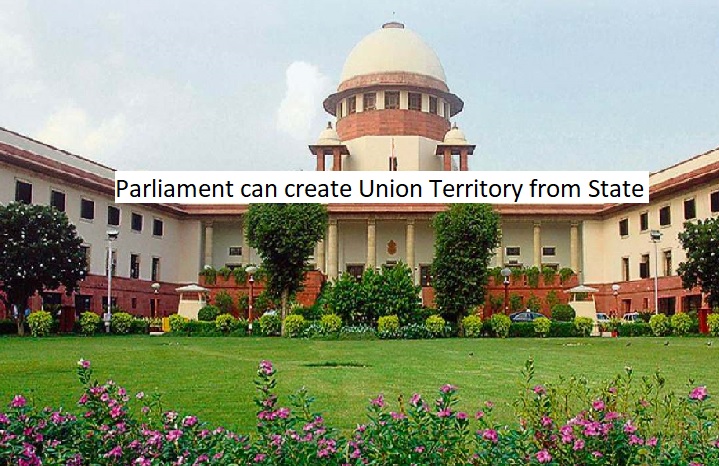


In a significant legal development, the Supreme Court not only upheld the repeal of Jammu and Kashmir's special status under Article 370 of the Constitution but also reinforced the authority of the Parliament to establish a Union Territory by carving it out from a State. The verdict was rendered by a Constitution Bench headed by Chief Justice of India DY Chandrachud, underscoring the constitutional implications of the Jammu and Kashmir Reorganisation Act 2019.
The crux of the matter lies in the constitutional provisions governing the autonomy of Jammu and Kashmir. Article 370 had granted the region a special status, allowing it a certain degree of autonomy. However, the abrogation of this article in 2019 sparked legal debates and challenges. The Supreme Court, in its recent ruling, not only addressed the validity of the repeal of Article 370 but also delved into the broader issue of Parliament's authority to redefine the administrative boundaries of a State by creating a Union Territory.
The Jammu and Kashmir Reorganisation Act 2019, a legislative measure introduced in the aftermath of the Article 370 abrogation, sought to reconfigure the region's administrative structure. It paved the way for the creation of two separate Union Territories – Jammu and Kashmir, and Ladakh. This restructuring was challenged, leading to a comprehensive examination by the Constitution Bench.
Chief Justice DY Chandrachud, leading the Bench, articulated the court's position on the matter. The verdict underscored the supremacy of Parliament in altering the territorial framework of States. The court held that Parliament possesses the authority to carve out a Union Territory from a State, and in doing so, the views of the affected State are deemed recommendatory rather than binding.
This judicial pronouncement carries significant constitutional implications. It reaffirms the plenary powers of Parliament to reshape the administrative divisions of the country. The court's decision emphasizes that the federal structure allows for flexibility in reorganizing States to better serve administrative efficiency, governance, and regional development.
Furthermore, the judgment highlights the delicate balance between federalism and the unitary features of the Indian Constitution. While States enjoy a measure of autonomy, the ultimate authority to reorganize them rests with Parliament. The court clarified that the requirement for the State's views is consultative, serving as a democratic and participatory mechanism, but not a mandatory prerequisite for legislative action.
The constitutional intricacies involved in this case also touch upon the principles of representative democracy. By upholding the Parliament's power to create Union Territories, the court acknowledges the role of elected representatives in making decisions that impact the territorial boundaries and governance structures of States.
In essence, the Supreme Court's decision not only validates the constitutional validity of the repeal of Article 370 but also establishes a precedent regarding the Parliament's discretionary powers in reorganizing States into Union Territories. This nuanced ruling contributes to the ongoing discourse on the distribution of powers between the center and the states, reinforcing the constitutional framework that governs the intricate balance of federalism in India.
As the legal landscape evolves, this judgment will likely serve as a reference point in future deliberations on matters involving the restructuring of administrative divisions within the country. The court's affirmation of Parliament's authority in this context marks a significant chapter in the constitutional jurisprudence of India.
TAGS: Governance Regional development Plenary powers of Parliament Constitutional framework Federalism Unitary features